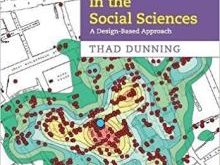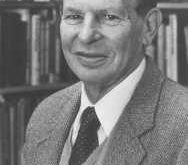from Lars Syll In physics, we have theories and centuries of experience and experiments that show how gravity makes bodies move. In economics, we know there is nothing equivalent. Mainstream economists necessarily have to load their theories and models with sets of auxiliary structural assumptions to get any results at all in their models. So why then do mainstream economists keep on pursuing this modelling project? Mainstream ‘as if’ models are based on the logic of idealization and a...
Read More »ABC’s of Modern Monetary Theory (MMT)
from Asad Zaman I was overwhelmed by the level of ignorance displayed by distinguished economist Raghuram Rajan in his article entitled “How Much Debt Is Too Much?” published recently in Project Syndicate on Nov 30, 2020. I had meant to write a critique of the article, but to do so requires starting from the very beginning. In this post, I go over some basic MMT concepts, in order to prepare the ground for this critique. There are now many good videos explaining these basics. I will go...
Read More »Neoliberalism must die because it does not serve humanity
from Nikolaos Karagiannis and current issue of RWER “. . . The practical use of the term “neoliberal” exploded in the 1990s, when it became closely associated with two developments. One of these was financial deregulation, which would culminate in the 2008 financial crash and in the still-lingering euro debacle. The second was economic hyper-globalization, which accelerated thanks to free flows of finance and to new, more ambitious types of trade agreements. Financialization and...
Read More »Statistics and causation — a critical review
from Lars Syll Causal inferences can be drawn from nonexperimental data. However, no mechanical rules can be laid down for the activity. Since Hume, that is almost a truism. Instead, causal inference seems to require an enormous investment of skill, intelligence, and hard work. Many convergent lines of evidence must be developed. Natural variation needs to be identified and exploited. Data must be collected. Confounders need to be considered. Alternative explanations have to be...
Read More »issue 94 – real-world economics review
Please click here to support this open access journal and the WEAsubscribe to the RWER download whole issue leave comments here Alarm. The evolutionary jump of global political economy needed Hardy Hanappi 2 Neoliberalism must die because it does not serve humanityNikolaos Karagiannis 27 Climate arsonist Xi Jinping: a carbon-neutral China with a 6% growth rate?Richard Smith 32 All the good things a digital euro could do – and all the bad...
Read More »The firm, yet again
from Peter Radford There is a new eBook published by the Stigler Center which is an offshoot of the Booth Business School at the University of Chicago. The publication contains a number of short essays either attacking or defending the infamous pronouncements by Milton Friedman on the role of the corporation. This year, you may recall, is the 50th anniversary of the newspaper article in which Friedman described his view that the purpose of the corporation is too maximize shareholder...
Read More »Natural experiments in the social sciences
from Lars Syll How, then, can social scientists best make inferences about causal effects? One option is true experimentation … Random assignment ensures that any differences in outcomes between the groups are due either to chance error or to the causal effect … If the experiment were to be repeated over and over, the groups would not differ, on average, in the values of potential confounders. Thus, the average of the average difference of group outcomes, across these many experiments,...
Read More »Beating up on finance
from Dean Baker When I do one of my diatribes about how our protectionist barriers allow U.S. doctors to earn twice as much as doctors in other wealthy countries, I invariably get complaints from doctors and their friends asking why I don’t go after the really big bucks people on Wall Street. The answer of course is that I do, but the bloated paychecks on Wall Street are not a reason to pay an extra $100 billion a year ($750 per household) to doctors in the United States. But it is true...
Read More »Causality and analysis of variation
from Lars Syll Modern econometrics is fundamentally based on assuming — usually without any explicit justification — that we can gain causal knowledge by considering independent variables that may have an impact on the variation of a dependent variable. This is however, far from self-evident. Often the fundamental causes are constant forces that are not amenable to the kind of analysis econometrics supplies us with. As Stanley Lieberson has it in Making It Count: One can always say...
Read More »Economics as moral philosophy
from Asad Zaman Among the many dimensions I have listed in “New Directions in Macroeconomics”, the most important is the moral dimension. If we take Adam Smith as the founder, economics was born as a branch of moral philosophy. However, modern economists claim that the subject is purely positive and scientific, and makes no value judgments. Before we can discuss moral dimensions of economic theories, we must counter this claim, and establish that, contrary to claims made by economists,...
Read More » Real-World Economics Review
Real-World Economics Review




